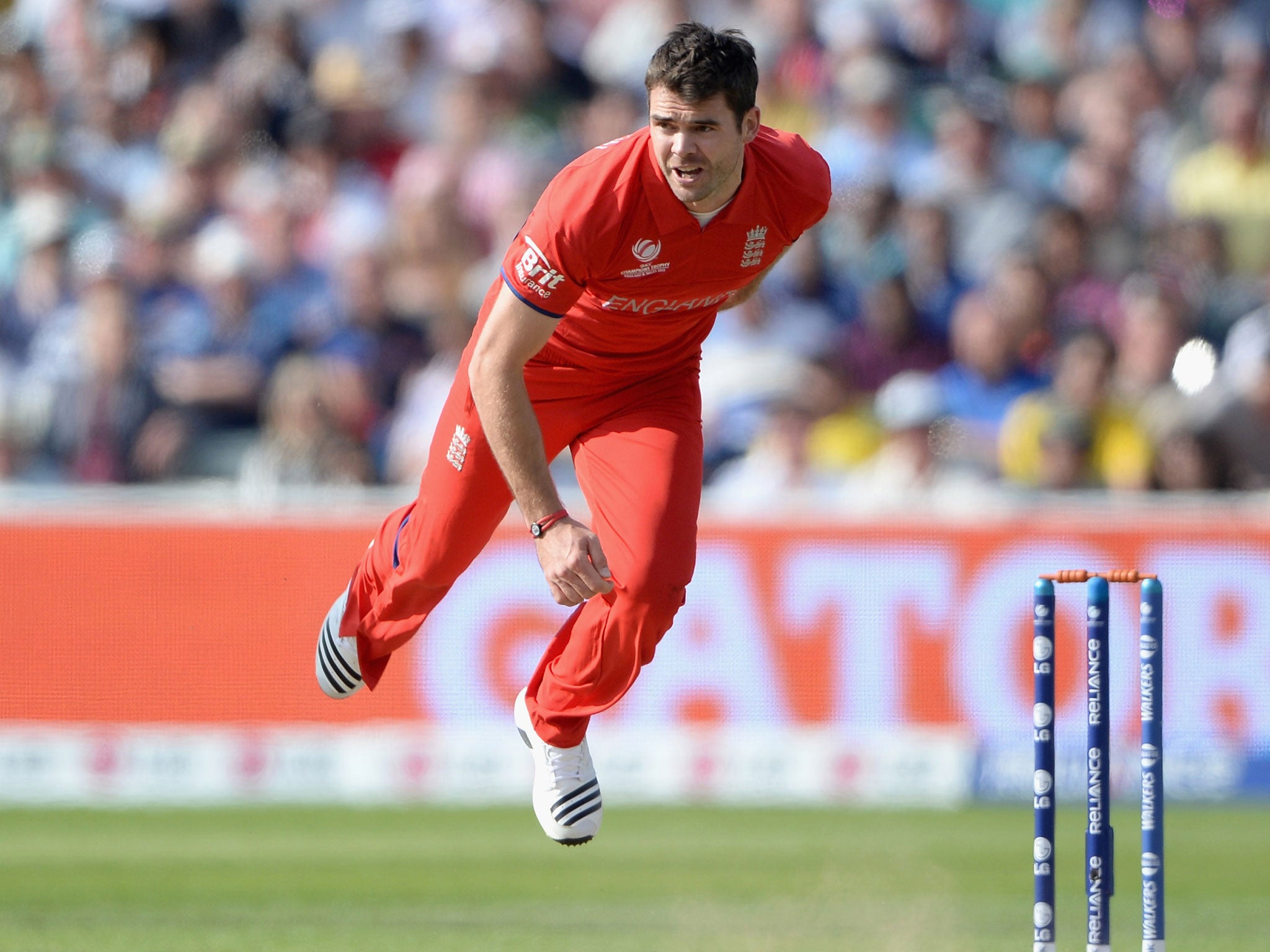No evidence to back up Bob Willis' claim that England are cheating
Sky pundit brings mutterings and rumours of ball-tampering out into the open but umpires have taken no action at all

England’s crucial final group match in the Champions Trophy today will be played under the cloud of ball-tampering. It is likely to be darker and more enduring than any of the threatening cumuli which have gathered above the Cardiff stadium.
Ball-tampering, effectively altering the condition of the ball to achieve an advantage through reverse swing, is one of the game’s most heinous misdemeanours. Paradoxically, the art of reverse swing is one of its most alluring and prodigious skills.
It has been an important part of England’s armoury in all forms of the game, almost to the point of obsession, in recent years. This is partly because they possess in Jimmy Anderson one of its leading exponents.
The methods used to achieve it have long been a topic of debate and scrutiny. Generally teams who cannot do it are automatically suspicious of team who can.
The latest shemozzle has occurred partly because England managed to persuade the ball to reverse early in Australia’s innings at Edgbaston eight days ago, and partly because they were annoyed when the ball was changed while they were bowling against Sri Lanka on Thursday.
After the second match Alastair Cook, the England captain, expressed his disappointment, because the original ball was starting to reverse but its replacement never did. The next day Bob Willis, the Sky pundit and former England fast bowler, whose role is to be contentious, effectively said England were tampering with the ball.
Willis thundered: “How naïve does Alastair Cook think we are? He didn’t want the ball changed. So why was it changed?” All rumbustious stuff, and the allegation was out in the open at last. Yet it is based on absolutely no evidence. There have been no official reports, reprimands or evidence.
The Laws of Cricket are quite specific about ball-tampering. Law 42.3 makes it clear that if the umpires agree that the ball’s condition has deteriorated more than it should have done they should consider there has been a contravention. They should change the ball forthwith and award five penalty runs to the batting side.
This has not happened, and there has been no suggestion that it should have done. If the umpires at The Oval thought England were changing the ball’s condition they were abrogating their duty by not imposing the penalty.
But there have been mutterings nonetheless, and Willis brought them out into the open. Ashley Giles, England’s one-day coach, was understandably miffed yesterday about the allegations, which he strenuously denied.
“The one big thing about this tournament so far that we’ve seen, particularly at Edgbaston, where we did get reverse swing, was how dry the squares are,” he said. “There have been a number of internationals being played on the same square, and that’s the one ground where it went around. And also there’s loads of different methods.
“You saw at Edgbaston, we were probably bowling cross-seamers into the second, third, fourth over. From the boundary you’ve got to throw the ball in on the bounce, because not everyone can throw it in on the full from 70 metres, and that’s permitted by regulations to bounce it in once, and as we saw at Edgbaston the ball started going around. Of course it’s helpful, but at The Oval it didn’t do it.”
What Giles was emphasising was the need to keep one side of the ball shiny and to make the other rough. Dry surfaces help in scuffing the ball up. Both are important, and when done thoroughly the ball can become lethal in the right bowler’s hands. Put simply, it moves late in the opposite direction to conventional swing.
The contentious issue is how sides make the rough side rougher and Ravi Bopara, the England all-rounder, who has been a revelation, has been in the eye of the storm. Bopara, when he plays, is the man who looks after the ball, but the suggestion that this is the reason he has been recalled seems ludicrous.
There have been veiled suggestions that saliva tainted by sweets is being used on the shiny side. Yet so far, in addition to there being no censure by officials, no television camera has picked up anything remotely untoward. It will not be for the want of trying.
Mike Hesson, New Zealand’s coach, said yesterday that it was not an issue for him. The umpires inspected the ball regularly and made it clear they would change it if there was anything wrong with it. Of England, he said: “I’ve got no idea how they achieved reverse swing. That’s not my responsibility. The umpire is there to do a job and if they think something is done out of the ordinary they’ll deal with it. But from what I understand they changed the ball because it was out of shape. That’s the only thing I’ve heard.”
England need to beat New Zealand in Cardiff today to go through, and this was an issue they could have done without. New Zealand also need to win to be sure of progress.
It is too close to call. England won the one-day series in New Zealand 2-1 and New Zealand won the one-day series here 2-1. It may be controversial to suggest it, but if England can achieve reverse swing they could be heading for the semi-finals.
Join our commenting forum
Join thought-provoking conversations, follow other Independent readers and see their replies
Comments
Bookmark popover
Removed from bookmarks